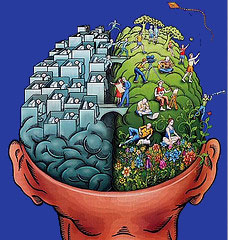Last week the Swedish Association for Sustainable Business held a seminar on a current trend within CSR – integrated reporting. Three large companies presented their answers to the questions “why produce integrated reports?” and “how does integrated reporting work in practice?”
Any company considering following a trend must ask “why?” Creating annual reports in which sustainability metrics are presented in combination with financial results, takes time and resources. In short the “soft” world of CSR has to be brought together with the “hard” world of financial reporting. Groups of people with different backgrounds, cultures, processes and mindsets have to work together to select information that is worth presenting and to ensure data quality meets the requirements of management boards and auditors.
Given that companies are not required by law to produce integrated reports – yet – why do some choose to do so?
From Tele2, Vattenfall and Atlas Copco there were several answers. First, integrated reporting reflects a strategic integration of sustainability issues at the highest level within the company, and second, integrated reporting is a response to stakeholder interest in sustainability performance. Both are worthy reasons to integrate reporting.
But for me the final answer presented by Marie Baumgarts of Tele2 was the most compelling: the aim of integrated reporting is to create more sustainable societies. When more companies publish good sustainability metrics, stakeholders will be able to make choices about which companies to invest in and to buy from, based on sustainability performance. So the most sustainable companies can be helped to grow and the least sustainable weeded out. It’s for this reason that I believe integrated reporting is a trend worth following.

 Gästbloggare
Gästbloggare

